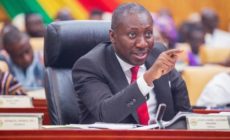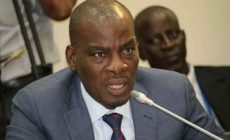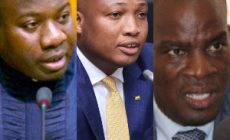I bought two billboards at Ghc14,500 – Minority leader
- Posted on
- Comment
 The Minority Leader in Parliament, Mr Osei Kyei- Mensah-Bonsu, has stated that the presidential democratic system of governance currently being practised by Ghana is stalling the fight against corruption.
The Minority Leader in Parliament, Mr Osei Kyei- Mensah-Bonsu, has stated that the presidential democratic system of governance currently being practised by Ghana is stalling the fight against corruption.
Likewise, he said the continuous holding of primaries by their respective parties to change experienced Members of Parliament was also rendering Parliament weak at the end of every election with the entry of inexperienced new members.
In Mr Kyei-Mensah-Bonsu’s opinion, parliamentary style democracy was the best way to go since it had the tendency to help eliminate corruption compared to the current presidential democracy.
At a media interaction in Takoradi at the launch of the rules and procedure and an electronic platform for citizens’ engagement with the Government Assurances Committee (GAC), he said the
huge expenditure that characterised presidential campaigns in Ghana had created avenues for corruption to flourish.
He explained that in a Westminster style of democracy, the Prime Minister did not spend much money during the campaign season as a President would due to the relative difference in the size of the constituencies for the two heads of government.
“In my Suame Constituency during the last elections, I had two billboards which cost me Ghc 9,000.00 and Ghc 4,5000.00 respectively. Interestingly, the president, for example, had four of such billboards in my small constituency,” he said.
He wondered how the President financed such billboards all over the country.
Mr Kyei-Mensah-Bonsu said it was fascinating that there were sponsors of these billboards who wanted a particular presidential candidate to win the election and become the president.
“These various donors are mostly rewarded with contracts by cutting corners, bridging all procedures resulting in the corruption we want to fight under the presidential system,” he said.
Mr Kyei-Mensah-Bonsu said aside the problems with the presidential system of democracy, one interesting thing was the holding of primaries at every general elections to elect new parliamentary candidates, a situation which, he said, was robbing Parliament of the needed quality.
He said though some of the new parliamentarians were making positive contributions on the floor of Parliament, most of them found it difficult to live up to expectation.
“It will be better for political parties to support their members to develop a parliamentary career, but if we constantly change who goes to Parliament by holding primaries, it will affect the quality of the human resource of the house,” he said.
In the current Parliament, for instance, the New Patriotic Party (NPP) has about 50 new Members of Parliament who have to take time to learn.
“Therefore, continuously changing members of parliament through primaries weakens the house and will not allow members to fully execute their responsibilities since most of them would not have the experience required to be effective parliamentarians ” he said
-Daily Graphic










 (Selorm) |
(Selorm) |  (Nana Kwesi)
(Nana Kwesi)